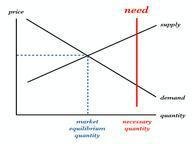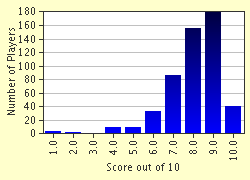Quiz Answer Key and Fun Facts
1. Under normal circumstances, when the price of a commodity falls, the quantity demanded will _______________.
2. Initially, when you consume more and more of a commodity continuously, your TOTAL satisfaction level will increase.
3. Since human wants are unlimited and available resources are limited, what will a rational consumer do?
4. When a consumer goes to market to purchase a commodity, he or she will purchase the __________ priced commodity, provided the commodities on offer are identical in all other respects.
5. Suppose you eat cakes continuously. Then the satisfaction derived from eating the tenth cake, as compared to satisfaction derived from eating the ninth cake will be _______ ?
6. A business firm tries to maximise its ________ ?
7. Monopoly is when there is a single _______?
8. Which essential element enables transactions to occur smoothly in a market-based economy?
9. When the economic activity in an economy is on the decline, and has registered two consecutive periods of negative growth, then it is called a _______ ?
10. What usually constitutes the main source of a government's income?
Source: Author
vpatnaik
This quiz was reviewed by FunTrivia editor
bloomsby before going online.
Any errors found in FunTrivia content are routinely corrected through our feedback system.

